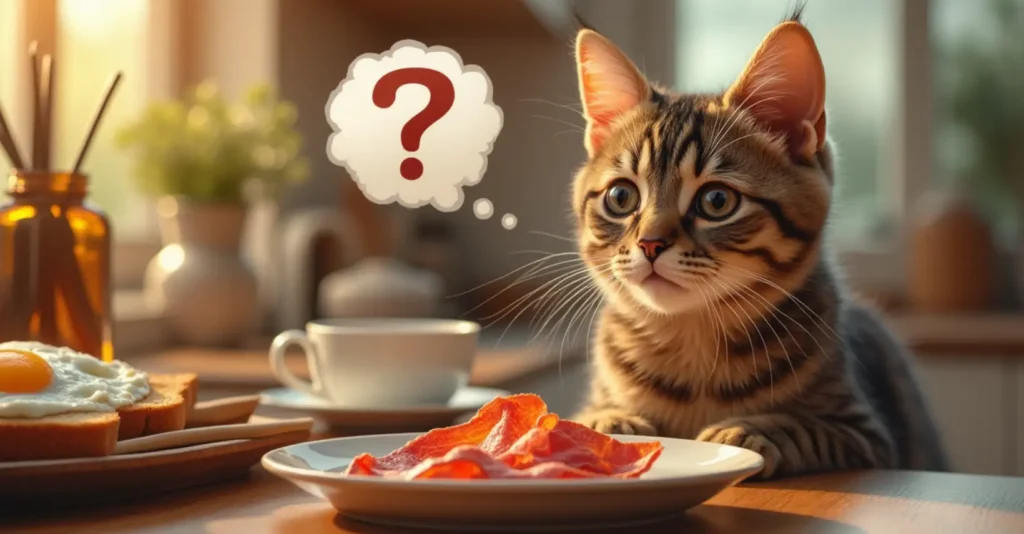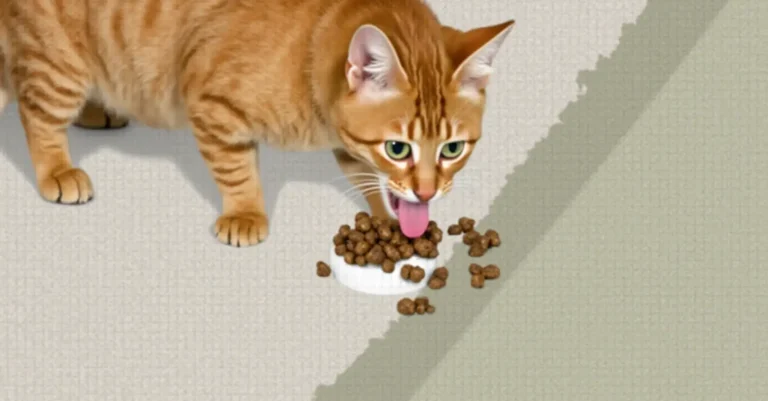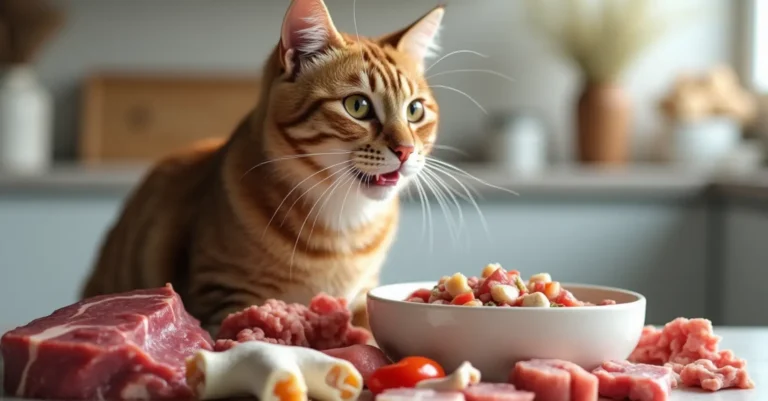Can Cats Eat Bacon? 7 Shocking Truths Every Owner Must Know
Bacon is one of the most beloved breakfast foods worldwide. Its irresistible aroma and crispy texture make it a favorite among humans, but what about our feline companions? If you’ve ever found your cat staring at you while you eat bacon, you may have wondered: Can cats eat bacon? While cats are obligate carnivores and can digest meat, not all meats are safe for them. This article explores whether bacon is a suitable treat for cats, the potential risks, and healthier alternatives for your furry friend.
While it’s true that cats are obligate carnivores and require meat to thrive, not all human foods are safe for cats. Some foods can be toxic to cats, leading to serious health issues. In this guide, we will explain what you need to know about feeding bacon to cats. We will cover the risks, benefits, and healthier options.
The Nutritional Profile of Bacon
Bacon comes from pork, and while it contains protein, it is also loaded with fat, sodium, and preservatives. Here’s a breakdown of what a typical piece of bacon contains:
- Protein – Essential for muscle growth and overall health.
- Fat – High-fat content, which can be harmful in excess.
- Sodium – High salt levels, which are dangerous for cats.
- Preservatives – Often contains nitrates and additives that can be harmful.
Is Bacon a Good Protein Source for Cats?
While bacon does contain protein, it is not an ideal source of protein for cats. Manufacturers create high-quality cat food to provide the right balance of nutrients. Bacon is too high in fat and sodium.
Is Bacon Safe for Cats? Understanding the Risks

Feeding your cat cooked bacon in small amounts is unlikely to cause immediate harm. However, regular consumption can lead to severe health issues. Here are the main risks:
1. High Sodium Content
Bacon is packed with salt. Cats have a low tolerance for sodium, and consuming too much can lead to:
- Dehydration
- Increased thirst and urination
- Sodium ion poisoning (in extreme cases)
2. High Fat Content
Fat is necessary in a cat’s diet, but too much fat can cause:
- Obesity
- Heart disease
- Pancreatitis (a serious inflammatory condition)
3. Preservatives and Additives
Most store-bought bacon contains nitrates, artificial flavors, and preservatives that are toxic to cats. Long-term consumption can affect liver function and overall health.
4. Risk of Digestive Upset
If a cat eats bacon, even in small amounts, it may experience:
- Vomiting
- Diarrhea
- Stomach pain
Can Cats Eat Raw Bacon?
No, raw bacon is not safe for cats. Uncooked pork carries a higher risk of bacterial contamination and parasites like:
- Salmonella
- E. coli
- Trichinella (a parasite found in raw pork)
If your cat accidentally eats raw bacon, monitor for signs of illness such as vomiting, diarrhea, or lethargy. If symptoms appear, contact your veterinarian immediately.
Can Cats Eat Cooked Bacon?
Cooked bacon is safer than raw bacon but still not recommended as a regular treat. If you decide to share a small bite with your cat, ensure:
- Plain (no seasonings, garlic, or onion).
- The chef fully cooked the dish, ensuring no raw or undercooked parts remain.
- They provide it in tiny portions (no more than a small piece).
Even a piece of bacon can be high in salt and fat, so moderation is crucial.
Guidelines for Feeding Bacon to Cats
If you still want to give your cat a taste of bacon, follow these guidelines:
1. Moderation is Key
- Treat bacon as an occasional treat, not a regular meal.
- A tiny piece of bacon once in a while is less harmful than frequent feeding.
2. Avoid Flavored or Processed Bacon
- Do not feed your cat maple, smoked, or flavored bacon, as these contain added sugars and spices.
- Avoid microwave bacon, which often contains even more sodium.
3. Monitor for Adverse Reactions
- Watch for signs of digestive upset or allergic reactions.
- If your cat experiences vomiting, diarrhea, or unusual behavior, consult your vet.
Healthier Alternatives to Bacon for Cats
Instead of feeding your cat bacon, try these foods that are safe and healthier:
1. Lean Meats
- Cooked chicken (unseasoned, boneless)
- Cooked turkey (a great low-fat option)
- Cooked beef (lean and protein-rich)
2. Cat-Safe Fish
- Salmon (rich in Omega-3, but only cooked and in moderation)
- Tuna (only as an occasional treat)
3. High-Quality Cat Treats
- Look for commercial cat treats that provide balanced nutrition.
- Choose freeze-dried meat treats, which are safer and healthier.
What to Do If Your Cat Eats Too Much Bacon
If your cat consumes a large amount of bacon, take the following steps:
- Observe Your Cat
- Look for signs of vomiting, diarrhea, lethargy, or excessive thirst.
- Provide Fresh Water
- Bacon’s high salt content can cause dehydration. Ensure your cat has access to plenty of fresh water.
- Contact Your Veterinarian
- If your cat shows severe symptoms, seek professional medical advice.
Frequently Asked Questions (FAQs)
1. Can Bacon Cause Long-Term Health Problems in Cats?
Yes, frequent bacon consumption can lead to obesity, heart disease, and digestive issues.
2. What Happens If My Cat Eats a Small Piece of Bacon?
A tiny piece of bacon occasionally is unlikely to harm your cat. However, it should not be a regular treat.
3. Can Kittens Eat Bacon?
No, kittens have delicate digestive systems. Bacon’s high fat and salt content make it unsafe for young cats.
4. What Are the Best Protein Sources for Cats?
High-quality cat food and lean meats like chicken, turkey, and beef provide the best nutrition.
5. Can Cats Eat Bacon-Flavored Treats?
It depends. Some bacon-flavored cat treats are safe, but check the ingredients for harmful additives.
Conclusion: Should You Feed Your Cat Bacon?
While cats can eat bacon in small amounts, it is not the best choice for their health. The high sodium and fat content make it an unhealthy treat, and long-term consumption can lead to serious health issues.
Instead, stick to foods that are safe for cats, such as lean meats or commercial cat food specifically formulated for feline health. If you’re unsure about introducing new foods to your cat’s diet, always consult your veterinarian.
By prioritizing your cat’s nutrition, you ensure a long, happy, and healthy life for your feline friend!







